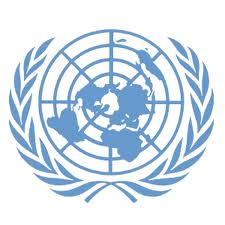Schizophrenia at the UN: “The Post 2015 Sustainable Development Agenda”, No More Poverty, No More War…

Financial Times, September 24, 2015 title: “Rise in World Bank Poverty Threshold Set to Push Millions More Below the Line”
With great fanfare, last September the United Nations adopted the “Post 2015 Sustainable Development Agenda,” a seemingly laudable agenda containing 17 goals from “End Poverty in All Its Forms Everywhere,” through Goal 16, “Promote peaceful and inclusive societies for sustainable development, provide access to justice for all and build effective, accountable and inclusive institutions at all levels,” Goal 17: “Strengthen the means of implementation and revitalize the global partnership for sustainable development.”
These 17 ambitious goals, if achieved, would lead to a paradise on earth. However, there is an elephant in the room that the architects of these post-2015 Sustainable Development Goals are ignoring, and which will, if left unaddressed, prevent the attainment of these goals. Under the section entitled: “Means of Implementation and the Global Partnership,” is stated:
“5. ‘We note the critical importance of private finance and we call on businesses to apply their creativity and innovation to engage as partners in the development process.’”
The document enumerates resources for achievement of these post 2015 Development Goals, which include, vaguely worded,
“domestic public resources, private business, philanthropists and foundations, parliaments, local authorities and other stakeholders, etc.”
These enumerated “resources” for implementation of these development goals are disparate and not necessarily reliable or adequate sources of financing for implementation of this new Post-2015 Development Agenda. Conspicuously ignored is the huge and greatest potential source of financing, which is contained in the astronomically large investment many countries are making in their military budget. There is absolutely no mention of the military budgets as a potential source of financing of this development agenda. In fact, 5% of the world’s military budget could completely fund the entire Post-2015 Sustainable Development goals.
According to the Stockholm International Peace Research Institute (SIPRI) for 2015, world military expenditure for 2014 is estimated at $1776 billion, an almost inconceivably huge amount. Armaments and the military-industrial complex are among the most profitable of all industries, and constitute an enormous investment in destruction, human agony and mass murder. This is, obviously, the virtual annihilation of any possibility of achieving the “Post 2015 Sustainable Development Agenda.”
At a UN press briefing I raised the question of this dilemma which confronts the architects of the Post 2015 Development Agenda: while the UN is attempting to build sustainable infrastructure to provide decent lives for all global citizens, the massive investment in the military, and war profiteering, leads to war, and the destruction of entire nations, and, indeed civilizations, so that while the UN is attempting to construct and create, a ruthless war industry is simultaneously destroying innumerable nations, making the task of construction and reconstruction endless.
This is a mutually exclusive situation, a win-lose dilemma, which ultimately renders futile and unattainable the entire Post 2015 Sustainable Development Agenda. Wu Hongbo, Under-Secretary General For Economic and Social Affairs, added that wars also cause enormous environmental destruction, which prevents the attainment of Sustainable Development Goals # 13, 14 and 15, which focus on protection of the environment.
The United States heads the list of main exporters of major weapons, with Lockheed Martin, Boeing, Raytheon topping the list of the 10 largest weapons producing companies. While the UN Post 2015 Sustainable Development Goals are admirable, the method and possibility of their implementation remains precarious as long as certain of the most powerful and influential member states of the UN are based on an economy driven by profit-maximization as their paramount concern and overriding interest. And war is one of the most profitable of all activities.
Unless the UN can prevail upon all their member states to restrain investment in the military, and transfer these destructive and wasteful investments to support human development, poverty will continue, failed states will continue, terrorism will increase, and the global quality of life will deteriorate even further. There is no mechanism within the UN, nor any attempt being made to confront these mutually exclusive “interests.” The success of the Post 2015 Sustainable Development Goals will require a restructuring of the global economic architecture, a restructuring currently opposed by the United States and other capitalist powers.
Carla Stea is Global Research’s Correspondent at the United Nations headquarters in New York

